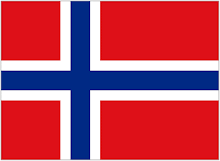Many of these memories were tainted by ideological bias, however.
The worst corruption pertains to the Spanish Civil War, where the crimes of the Communists and the Left can apparently be simply airbrushed out of history because they happened to be fighting those semi-mythical agents of evil, 'fascists'.
Never mind the fact that those 'brave lads' from Britain were volunteering for a cause which forced priests to dig their own graves before burying them alive, a cause which wished to see Spain subjugated by a wicked tyranny based on that of the Soviet Union - that can be overlooked because of their enemies, as can the ensuing cultural and economic destruction such a system would have wrought.
Of course, this ideological double standard is nothing new; for many decades Western intellectuals lied to the population at large about Stalin and the nature of his regime in the Soviet Union, and refused to admit the truth even to themselves about that blood-drenched fanatic Lenin.
One of the least acknowledged truths of history is that no one thinks of himself as the villain of the piece, no matter how easy it is to see him as such afterwards, when history's emotional baggage has been attached.
Most people are not attracted to a cause because how evil its leader is makes them tingle all over; generally they are drawn in, find themselves in too deep, and then it is too late.
Even the Nazi leadership of the Second World War were not cackling Bond-worthy supervillains - they believed themselves to be fighting for a just cause which was a long time coming. In fact, the entire Nazi movement was profoundly self-righteous.
To be honest, isn't that actually more frightening than dismissing them as 'evil', or 'monsters'?
We live in a time when only one interpretation of history is permitted in the mainstream. But, just as you would be wise not to ask a Holocaust denier how bad Nazi Germany really was, why would you expect a committed, ideologically sound Leftist to tell you the truth about his movement, and the blackness found at the centre of it?
I favour an objective, fact-based approach to history.
To the likes of Stuart Maconie, I say that the young men from Britain who volunteered in Spain - for the fascists or the communists - were simply misguided.
Neither group was uniquely evil, because they were both blinded to objective reality by ideology.
Observe the following scene from the excellent Dutch film Zwartboek, which deals very well with moral ambiguity and the many guises which evil takes. Watch General Käutner's speech before the song starts:
That probably is a fair assessment of how the Nazis really saw themselves. The only problem is that it is simply untrue. In no conceivable way were the Nazis fighting for what we would recognise as freedom, or for a good cause.
We would rightly not trust any of their modern apologists or intellectual heirs if they told us otherwise.
So why do we trust ex-Communists, Trotskyites and Stalinists to tell us about the Left and the Right?
I would hate to see the Spanish Civil War become the new Soviet Union, a one way narrative where only one viewpoint counts, no matter how deviant from reality.
The horrors of the Soviet Union are still new in the public consciousness compared to those of Nazi Germany; such large scale atrocities are so incomprehensible to normal people that stories of individual courage and suffering often highlight them most effectively.
Yesterday the Mail published the story of Brian Johnson (circled below right), an Englishman who was servant to Grand Duke Mikhail Romanov (below left), technically the very last Tsar of Russia.


Johnson and his master were murdered by bloodthirsty Bolsheviks in woodland near the Ural Mountains.
Mikhail was wounded by the first bullet, and the second struck Johnson. Mikhail crawled over to his dying servant and begged the executioners to let him say goodbye to his friend.
Both were then shot in the head at point blank range.
The man who killed Johnson, Andrei Markov, then stole his antique watch, later boasting:
'I took it as a memory of him after I shot him dead. Since that moment, I haven't taken it off. It hasn't required any repair work.'
Here is the full story:
He had devoted his life to serving his master - and, even in the face of certain death, that loyalty never wavered.
Yet for 90 years, Briton Brian Johnson - murdered by Bolshevik revolutionaries in Russia - was officially branded an 'enemy of the people'.
As valet to Michael Romanov, younger brother of Tsar Nicholas II, Johnson had known he faced execution as the 300-year-old dynasty was swept aside in 1917.
Michael pleaded with his faithful servant to flee to the safety of Britain - but Johnson bravely refused to leave his side.
On June 12, 1918, both were shot by a bloodthirsty rabble.
As Johnson lay dying, the wounded Michael went to his aid, begging the execution squad: 'Let me say goodbye to my friend.' Moments later, he too was dead.
Now, however, the Kremlin has officially rehabilitated Johnson - meaning he no longer carries any stain of guilt on official records.
The Russian government declared Johnson, Michael and other members of the Imperial Family had been unlawfully persecuted and killed by the feared Cheka, the forerunner to the KGB.
Johnson had been Grand Duke Michael's private secretary since 1912 and was described as being 'round faced, not very tall, and speaking three languages'.
His father, Nicholas, was a Briton, although it is not known exactly where he was from.
Nor is it known how he came to meet and marry Brian's mother, a Russian woman who was a music teacher at the Russian Imperial Court.
Brian Johnson was an accomplished pianist, and a shared love of music led to his friendship and then employment with the lanky Michael.
The pair became known as 'Little and Large' around the court. Michael represented his brother, the Tsar, at the funerals of both Queen Victoria in 1901 and Edward VII of England in 1909.
As a result of his travels, he became something of an Anglophile.
Many of his tastes and preferences shaped during those years reflect those of the English aristocracy. He was an accomplished equestrian, an avid automobile driver, and loved animals and country living.
Johnson's moment in Russian history came in 1917 after Tsar Nicholas abdicated on behalf of himself and his sole heir, his haemophiliac son Alexey, 12.
Rather than renounce the throne altogether, Nicholas quit as absolute ruler in favour of his younger brother.
Johnson was involved in drawing up Michael's response a day after Nicholas' abdication on 15 March.
The response did not turn down the throne, but agreed to accept it only if Russia became a constitutional monarchy supported by the 1917.
'will of the people'. Russian historians argue that while never crowned, Michael technically ruled for a matter of hours before Russia was declared a republic by the provisional government.
Aware of the dangers ahead, Michael told Johnson he should flee to Britain, but the aide refused to go unless Michael went with him to safety.
But the royal refused to leave Russia, which was then engulfed in the First World War. Both were soon exiled to the city of Perm.
Despite having to report to the guards every day at 11am, they lived in some luxury in a hotel, with a Rolls Royce at their disposal, much to the chagrin of local Bolsheviks.
It was local 'workers' who conducted the execution in a nearby forest - apparently on the orders of Vladimir Lenin, founder of the
Soviet Union, amid fears the anti-revolutionary White Russians would liberate Michael.
Michael was struck by the first bullet, then Johnson was shot and mortally wounded.
After going to Johnson's aid the wounded Michael was shot at point blank range in the head.
The murders were the first in an orgy of Romanov killings between June 1918 and January 1919. In all, 18 members of the Imperial Family were executed.I think if this tells us anything, it is that ideology gives no person the right to the moral high ground.
.jpg)
















































































No comments:
Post a Comment